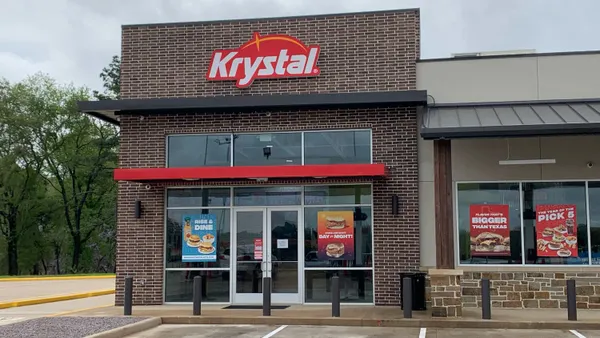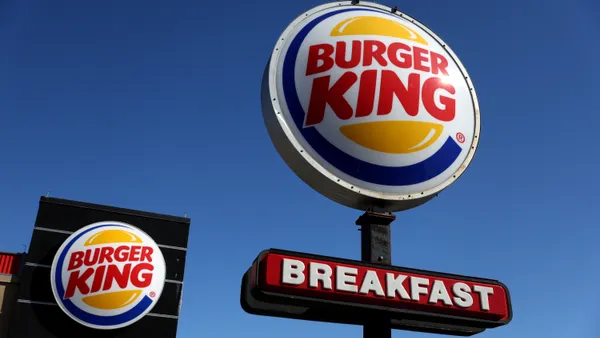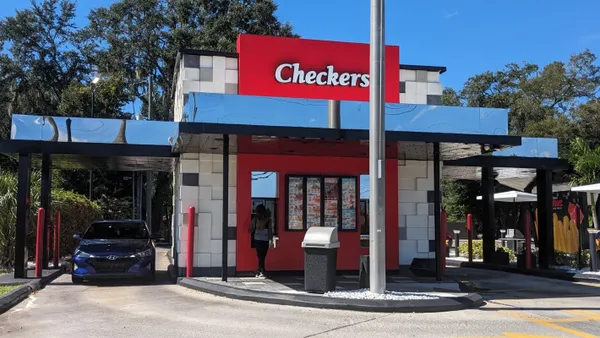Eva Rodriguez has worked at a Subway in Los Angeles for more than a decade. For much of that time, she worked more than 100 hours a week. Rodriguez said she was not paid overtime for those extra hours.
In September, Rodriguez filed a lawsuit against Subway, its parent company Doctor’s Associates and the Subway franchisee that employs her. She alleges that the operator engaged in wage theft by denying her breaks, making her work off the clock and not paying her overtime. For example, during the COVID-19 pandemic, she worked eight-to nine-hour days, receiving half the pay for this timeframe, the lawsuit states.
Rodriguez, in an interview conducted with the aid of a translator, told Restaurant Dive that she decided to sue her employer after she was injured on the job and filed a workers’ compensation complaint in California. Her employer then threatened her ability to work in the United States, Rodriguez said.
The franchisee, Rodriguez said, “told me that with this claim, I would be investigated. That I would lose my residency, which I thankfully have in the U.S. She threatened me with my immigration status, and made me feel really, really scared. That’s why I initially retracted that claim.”
Subway and the operator did not respond to requests for comment.
Earlier this year, Rodriguez said, she got in touch with an organizer with the California Fast Food Workers Union, a subsidiary of the Service Employees International Union that is trying to organize QSR workers in the Golden State through channels other than traditional National Labor Relations Board elections.
Those conversations spurred her to sue her employer and taught her what her rights were under state and federal labor law, Rodriguez said. She said she’s faced retaliation since confronting her employer over workers compensation, and that her hours have been cut.
“I was really supported by my union, and I really hope that this is something that other workers can have happen as well,” Rodriguez said.
Rodriguez’s suit names Doctor’s Associates, Subway’s parent company, as a joint employer, saying the company exercised control over wages, hours and conditions, and operated as a single enterprise.
The suit claims the restaurant operator is “able to, and routinely [does], alter the punch-in and punch-out times of crew members in Subway’s computer system.”
According to the complaint, Rodrigues received paychecks showing fewer hours than were punched in and worked. She believes management altered her time records.
Subway, Rodriguez said, frequently checks in on operations in the stores.
“They manage everything from the top down; they're the ones managing how we make sandwiches, the prices. They control it. All these corporations really know what's going on,” Rodriguez said.
Franchising groups, like the International Franchise Association, have made the defense of loose joint employer rules a key political priority. The threat of strengthened joint employer provisions in California was a key impetus for the IFA and the National Restaurant Association when they agreed to the $20 fast food minimum wage compromise last year.
While federal courts have killed an NLRB expansion of the definition of joint-employer, many lawsuits against franchised brands seek to hold the brands themselves accountable for actions undertaken by operators. Earlier this year, Subway and GRB Investments were sued jointly by a former employee who was sexually abused by a manager while working at a Subway.
Rodriguez said she felt moved to sue in part because wage theft is a common issue for many workers.
“I'm raising my voice so that this doesn't happen to anyone else,” Rodriguez said.
Rodriguez said that wage theft particularly impacted immigrant workers, and said the franchisee of her Subway would pay sick leave to workers born in the U.S., but deny it to immigrant workers.
“Everybody just thought this was normal,” Rodriguez said. “But then when I got connected with an organizer, and I told her everything that I really hadn't told anyone else, she was shocked by this and she told me this was illegal,” Rodriguez said.
SEIU and its subsidiaries are targeting major restaurant brands over alleged wage theft. The Union of Southern Service Workers, for example, recently filed a complaint with the Department of Labor alleging Waffle House was engaging in systematic wage theft by paying employees the subminimum wage for tasks that should require the full minimum wage.














